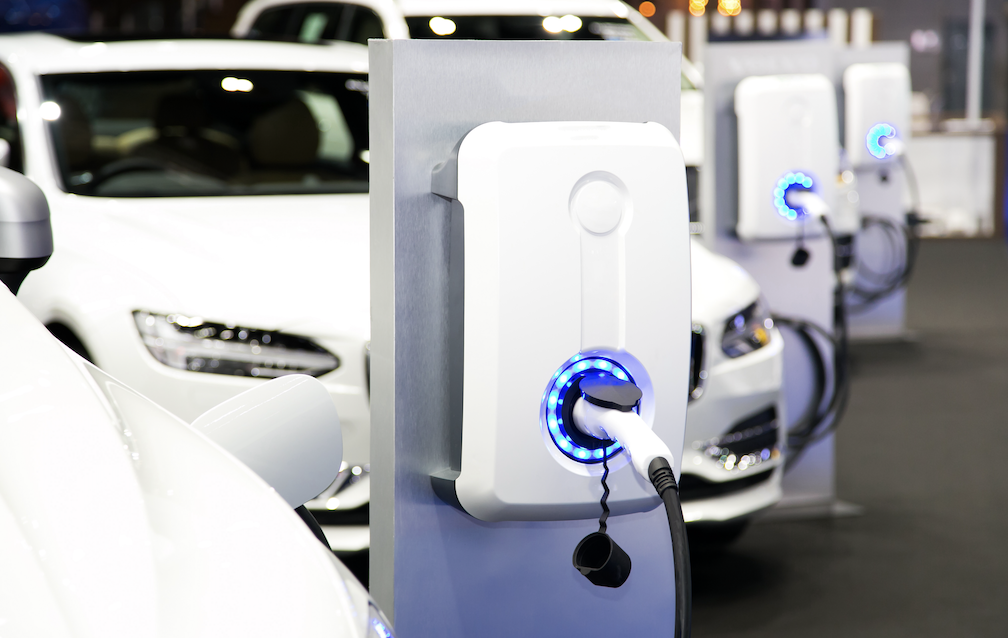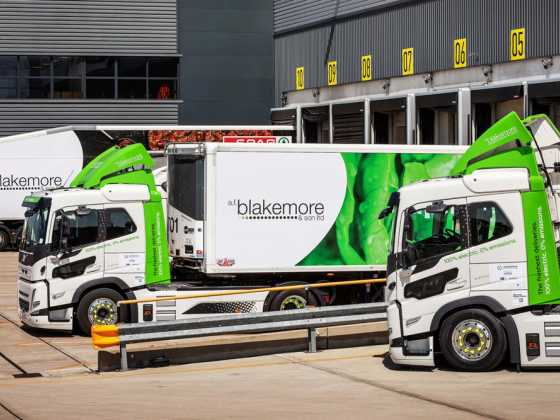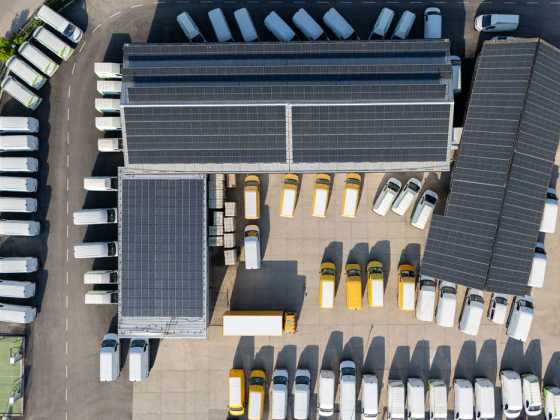Purchasing with a green agenda in mind

James Rodgers from the government’s procurement agency, Crown Commercial Service, shares considerations for purchasing electric vehicles in the public sector
Since the turn of the 2020s we have seen a real boom in the availability and popularity of electric vehicles. The government and the motor industry have invested £91.7 million to decarbonise commercial transport. And there are now many more low emission vehicles on the market – from mini and super-mini to large saloons and vans.
The average electric car on sale in the UK can travel more than 200 miles on a single battery charge – travelling from London to Leeds. And confidence is growing in electric vehicles as we see more on the road.
There is an ever-increasing choice of battery powered electric vehicles on the market, with many brands on their second or third generation. Some 27 manufacturers market pure electric cars, and 11 manufacturers market the battery electric vans. In fact, almost 26 per cent of cars made in the UK in July 2021 used alternative fuel.
Increasing demand
Electric vehicles are certainly gaining in popularity. And there is increasing demand from fleet managers in the public sector. Five years ago only five per cent of some 25,000 new vehicles sourced through Crown Commercial Service, the government’s procurement agency, were ultra-low emission. Now almost 40 per cent of some 30,000 new vehicles are ultra-low emission. And 25 per cent of vehicles used in the public sector are, in fact, zero carbon emission – using battery electric technology.
The government has set a target to reach Carbon Net Zero by 2035 and the public sector knows that electric vehicles will help them achieve this goal.
Value for money
Electric vehicles will, certainly, be vital in our quest to achieve Carbon Net Zero by 2035. But there are other benefits as well. Electric vehicles can be less expensive than diesel or petrol vehicles – as much as 21 per cent cheaper.
Although the initial price of an electric vehicle is more, the cost of servicing and replacing parts is much less. An electric vehicle quite simply has less to go wrong. There are usually three main parts – the onboard charger, the inverter and the motor. In contrast, a petrol or diesel vehicle is more complicated with many parts – including the engine, radiator, the cooling system, pistons, spark plugs, fuel pump, the exhaust and the timing belt. The simplicity of the electric vehicle can, in fact, halve the cost of maintenance and repair. And with an electric vehicle you also save on fuel. There is, of course, the cost of energy and recharge. But the cost of petrol or diesel can be three times more than the cost of recharging, especially when using a closed fleet network or a home charging solution.
Choosing the right vehicle
There is a good range of electric vehicles on the market and it is vital that you select the right vehicle for your needs. Crown Commercial Service can help you make this important decision.
The Crown Commercial Service Fleet Portal covers all your needs. And you can choose from a growing range of electric vehicles with different technical specifications. It gives you quick and easy access to technical and pricing information for all standard build cars and vans in the UK market – including ultra-low emission vehicles.
You can use filters to select your criteria which might include fuel type, the level of CO2 emissions, ratings for the New Car Assessment Programme (NCAP) safety, mileage range and electric connector type. The Fleet Portal gives a real time view of models currently on the market – up-to-date with new and innovative vehicles from all manufacturers.
The Fleet Portal also sets out the whole-life costing for each vehicle, allowing you to compare the cost of different models. You can factor in the anticipated term and mileage, discounts or lease costs. And, importantly, you can build in the cost of maintenance and fuel, and the residual value. This is very helpful when making a financial case to move from internal combustion to ultra-low emission vehicles.
Grants and incentives
The government’s commitment to Carbon Net Zero brings yet more financial benefits – in the form of government grants and incentives. The government’s Workplace Charging Scheme provides financial support for the purchase and installation of electrical charging points And the government’s plug-in vehicle grant offers £2,500 towards a qualifying car; or £3,000 towards an eligible ultra-low emission van. There are also grants for business vehicles – to cover the cost of home charging points.
Most fleets use contract hire for vehicles but the government is currently offering a number of additional tax incentives that may be of interest. The benefit-in-kind banding is a tax incentive for electric vehicles. Electric vehicles that travel more than 130 miles on a single charge, with carbon emissions less than 50 g/km are eligible for the 2021/22 lowest tax rate of just one per cent of the vehicle’s P11D value, rising in 2022/23 to two per cent.
The government is also offering green salary sacrifice schemes. When employers join, their employees can obtain a new leased vehicle through a salary sacrifice scheme. And those employees will no longer use their own, older, high emission vehicle for business, helping the government to achieve Carbon Net Zero by 2035.
Long lead times – order early
With demand for electric vehicles high, forward planning is needed. Planning ahead is always important so your fleet is fit for purpose. But, at the moment, there are specific delays due to a shortage of parts and raw materials. A particular shortage is with the smart semiconductor technology which is needed in almost all modern cars. All vehicles have been affected and lead times can be as long as 12 months.
Accelerate your move to electric vehicles
Crown Commercial Service will add power to your procurement - helping you save time and money as you source your electric vehicles.
Go to our Fleet Portal for quick quotations.
Visit Total Fleet Solutions for more information about our fleet frameworks.
Sign up to our Fleet newsletter for the latest news and industry insights.






